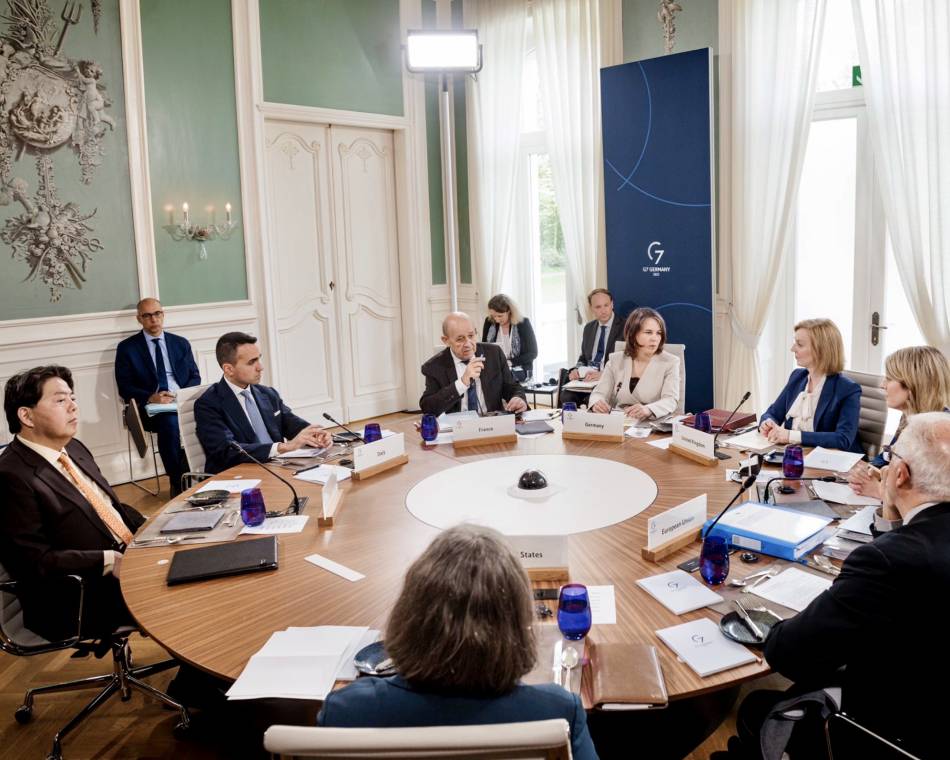Russia's invasion of Ukraine is causing a global food and energy crisis that threatens the lives of tens of millions of people particularly in Africa and the Middle East, the Group of Seven's top diplomats warned on Saturday.
Calling it a "watershed moment for the 21st century" with ramifications well beyond European borders, the G-7 rich democracies' foreign ministers condemned Russia's aggression and pledged an urgent, coordinated response to keep Ukraine's massive exports of wheat and other grains flowing despite Russia's clampdown on that vital global food supply.









